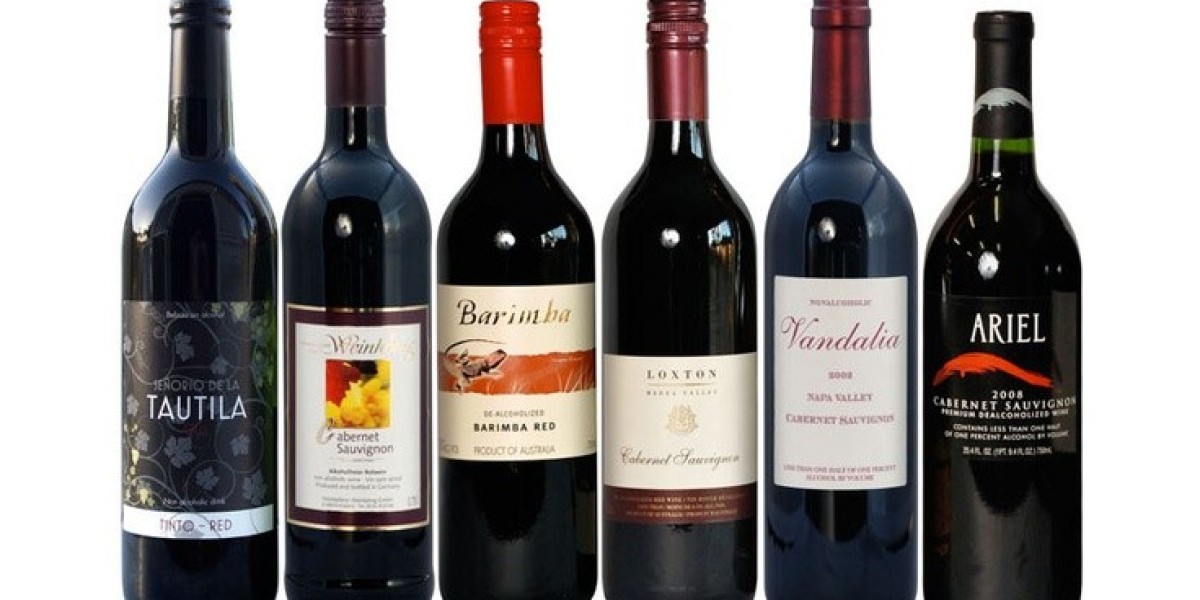Non-alcoholic wines have become one of the fastest-growing categories in the beverage industry, attracting consumers who want the social experience of wine without the effects of alcohol. Whether motivated by health, lifestyle, religion, or personal preference, people are turning to alcohol-free options at record rates. Today’s non-alcoholic wines are more flavourful, sophisticated, and widely available than ever before, offering the pleasure of a classic pour with none of the traditional drawbacks. In this comprehensive guide, we explore what non-alcoholic wine is, how it’s made, its benefits, flavour profiles, and why its popularity continues to rise globally.
What Are Non-Alcoholic Wines?
Non-alcoholic wines are beverages made from traditional wine grapes but with the alcohol removed. They begin their life exactly like standard wine—through harvesting, crushing, fermentation, and aging. After the wine develops its characteristic flavour, a specialised process removes the alcohol while aiming to preserve taste, aroma, and complexity.
To be classified as non-alcoholic, these wines typically contain less than 0.5% ABV, which is similar to many fermented foods. This extremely low alcohol level allows consumers to enjoy the wine experience without intoxication.
How Non-Alcoholic Wines Are Made
Producing high-quality non-alcoholic wine requires advanced technology and careful craftsmanship. There are three primary methods used by modern wineries:
Vacuum Distillation
This method gently heats wine under low pressure, allowing alcohol to evaporate at much lower temperatures. Since the wine is not exposed to intense heat, its original flavours and aromas remain intact.
Reverse Osmosis
A premium filtration method that separates alcohol molecules from the wine while retaining its flavonoids, tannins, and colour. The concentrated wine is later blended with water to restore its natural body.
Spinning Cone Column
A sophisticated technology used by many top wineries. It spins the wine through thin layers, removing alcohol vapour while preserving the delicate aromatic compounds that contribute to taste complexity.
These methods make today’s non-alcoholic wines far more enjoyable than earlier versions, which often tasted flat or overly sweet.
Types of Non-Alcoholic Wines
Alcohol-free wines come in all the classic varieties found in traditional wine collections. This makes it easy for consumers to find options based on taste, pairing preferences, or special occasions.
Non-Alcoholic Red Wine
Rich, bold, and full-bodied options like Merlot, Cabernet Sauvignon, and Shiraz are among the most popular. These wines often include deep flavours of berries, oak, spice, and chocolate—perfect for hearty meals or evening relaxation.
Non-Alcoholic White Wine
Refreshing and crisp varieties like Chardonnay, Sauvignon Blanc, and Pinot Grigio remain favourites for summer drinking, light meals, and elegant gatherings.
Non-Alcoholic Rosé Wine
Rosé continues to dominate the alcohol-free market thanks to its balanced sweetness, floral notes, and versatility for social events.
Non-Alcoholic Sparkling Wine
Whether for weddings, birthdays, or celebrations, sparkling alcohol-free wines provide all the excitement of champagne without the alcohol. Many brands produce exceptional bubbly with fine bubbles and bright flavours.
Health Benefits of Non-Alcoholic Wines
One of the main reasons for the rise in alcohol-free wines is their health appeal. Consumers increasingly seek beverages that support wellness without eliminating enjoyment.
No Hangovers or Side Effects
Since the alcohol content is minimal, drinkers avoid headaches, dehydration, dizziness, and other after-effects associated with regular wine.
Lower Calories
Most non-alcoholic wines contain far fewer calories than alcoholic ones, making them a great choice for weight management.
Heart-Healthy Properties
Because they retain many antioxidants found in grape skins—like polyphenols and resveratrol—non-alcoholic wines can support cardiovascular health.
Perfect for Pregnant or Breastfeeding Women
Consultation with a doctor is recommended, but many women prefer these alcohol-free options for special occasions.
Compatible with Medication
People who avoid alcohol due to health conditions or prescriptions can still enjoy the pleasure of wine safely.
Hydration-Friendly
Unlike traditional wine, alcohol-free options do not dehydrate the body, making them a more balanced beverage choice.
Why Non-Alcoholic Wines Are Growing in Popularity
The rise of non-alcoholic wine isn’t just a trend—it reflects a major shift in global drinking culture. Several factors fuel this movement:
Wellness Lifestyle
People are more focused on mental clarity, fitness, and healthy routines, leading to reduced alcohol consumption.
Social Acceptance
Choosing non-alcoholic drinks is now widely respected rather than judged, making it easier for people to enjoy alcohol-free alternatives at events.
Improved Quality
Modern production techniques allow brands to deliver flavours nearly identical to traditional wines.
Expanding Market Availability
Supermarkets, specialty shops, online retailers, and restaurants increasingly stock premium alcohol-free options.
Growing Premium Brands
Companies like Thomson & Scott, Oddbird, and Freixenet have brought luxury to the alcohol-free world, making these beverages stylish and desirable.
Best Food Pairings for Non-Alcoholic Wines
Pairing alcohol-free wines with food enhances both taste and dining experience. Here are some ideal combinations:
Red Wines: roasted meats, pasta, charcuterie, aged cheese
White Wines: seafood, grilled chicken, salads, creamy pasta
Rosé Wines: light snacks, fruit platters, Mediterranean dishes
Sparkling Wines: desserts, brunch foods, celebratory cakes
Just like traditional wine, the right pairing enhances aroma, flavour, and texture.
Tips for Choosing the Best Non-Alcoholic Wine
If you are new to alcohol-free wines, consider these helpful tips:
Check brand reputation and reviews
Choose darker grapes for richer flavours
Look for wines made through reverse osmosis or spinning cone technology
Try sparkling options for celebrations
Experiment with different varieties to find your preferred taste
Non-alcoholic wines differ greatly in quality, so exploring top brands ensures a better experience.
The Future of Non-Alcoholic Wines
As consumers worldwide adopt healthier drinking habits, the non-alcoholic wine market is expected to grow significantly. Manufacturers are already innovating with organic grapes, sugar-free blends, premium sparkling wines, and complex reds that closely resemble traditional wine profiles. Restaurants, bars, and hotels are also expanding their alcohol-free wine menus, offering more choices for guests.
Given this momentum, non-alcoholic wines will likely become a permanent and celebrated part of global drinking culture.
Conclusion
Non-alcoholic wines have transformed from simple substitutes into sophisticated beverages that cater to modern lifestyles. With improved taste, diverse varieties, health benefits, and rising global demand, these wines offer the perfect balance between enjoyment and wellness. Whether you’re celebrating a milestone, pairing a meal, or simply enjoying a relaxing evening, non-alcoholic wines deliver a refined and satisfying experience—without the alcohol.






